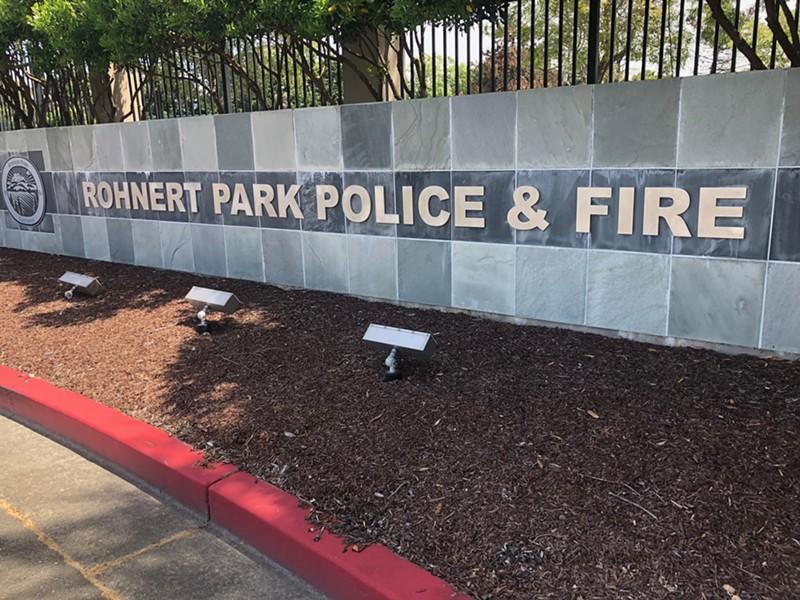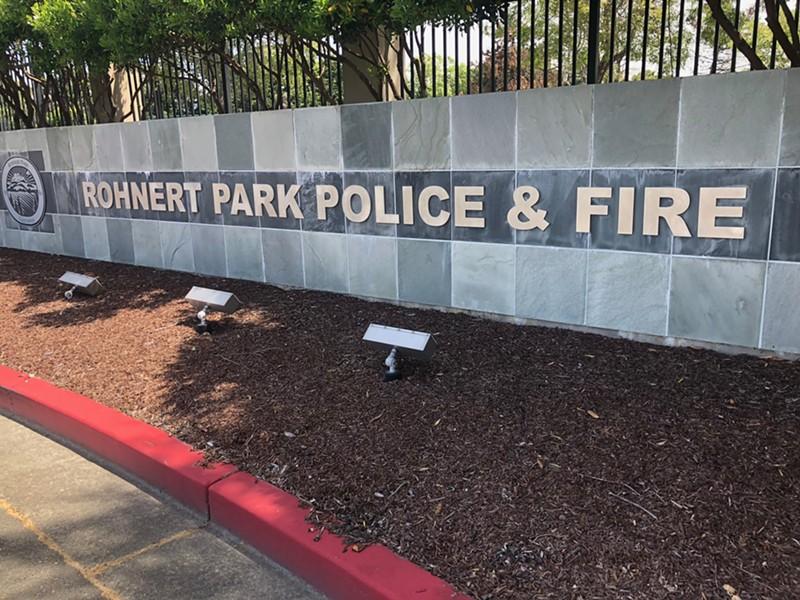While it may seem like a career in law enforcement necessitates a very obvious path through college, there are alternative pathways that can lead to the same destination, or so says Jon Kempf.
“Any major that you have can work into criminal justice and law enforcement,” explained Kempf, a detective at the Rohnert Park Police Department, which is a part of the Rohnert Park Department of Public Safety.
The Rohnert Park Department of Public Safety is one of two such remaining departments in California.
Kempf, a graduate of the University of Wisconsin, got his bachelors in behavioral science and law before going on to San Jose State, where he got his masters in criminal justice administration. He has spent the last 15 years in the force.
Often times, Kempf said, college students make the mistake of believing that, in order to be involved in the criminal justice field, they must receive a degree in an associated major, although he makes it clear that this is not the case.
Anything that one might be interested in, there most likely will be a need for it somewhere in law enforcement.
Whether it be somebody interested in computer science, journalism, or even engineering, there are needs for that. There is a need for computer science when it comes to crime scene investigations. If you are a communications major or somebody interested in journalism, the department is writing press releases extremely often. For those interested in engineering, they are constantly doing road surveys.
“If there’s a bad traffic accident, there is a major accident investigation team that goes out and reconstructs the accident scene. They’re looking at crushed depths on cars, recreating the accident, and doing all the necessary calculations to say exactly what happened,” Kempf said. “Pretty much any major can find their niche.”
For those interested in opportunities within law enforcement, he suggests to look at the desired departments’ requirements, for some departments require a four year degree, some require just a two year degree, while others may not require a degree at all.
Kempf states that the Rohnert Park Police Department has SSU interns working for them every semester and there continues to be a great deal of opportunities for those who are interested.
He encourages interested students to look into where they want to work and to do ride alongs. The process is as simple as calling the agency and letting them know that you are interested.
There are only two remaining “public safety” departments left in California, Rohnert Park being one of the cities which still has one. The idea behind them is to combine all resources so that officers can respond to any call, whether it be a fire, a medical matter, or something directly for the police.
These qualities set the Rohnert Park department apart in comparison to others. “We’re a public safety department, police and fire. The people here are great, this is more of a family. We try and take care of each other,” he said, emphasizing the unique dichotomy of the department.
While some may be interested in a career in law enforcement, it can be more than just learning the ins and outs of the job and taking a written test, as well as being able to pass a physical fitness test.
“This job you are tested not only on the street every day, but you’re tested academically and physically all the time,” Kempf explains.
In addition to being physically in shape, Kempf stresses the importance of having interpersonal skills.
“A lot of younger folks have spent so much time communicating over text message that they have a hard time talking to people on the streets that they don’t know. That’s what we’re doing. We’re pulling up on scenes, we’re talking to people we’ve never met before. We have to have interpersonal communication skills, that’s huge.”
As there are to every job, there are some of the positive and negatives of being in the force.
“You work outside, you work with a team, it’s fun, it’s rewarding work. You can really make somebody’s day, recover property for someone. But the job can also take a toll on you mentally as well. You see people at their worst, victimized of crime. It can take a mental toll on you.”
Sonoma State offers students the option to graduate with a BA in criminal justice, although that is not a student’s singular option if they wish to pursue a career in law enforcement. The possibilities, according to Kempf, are plentiful.




































